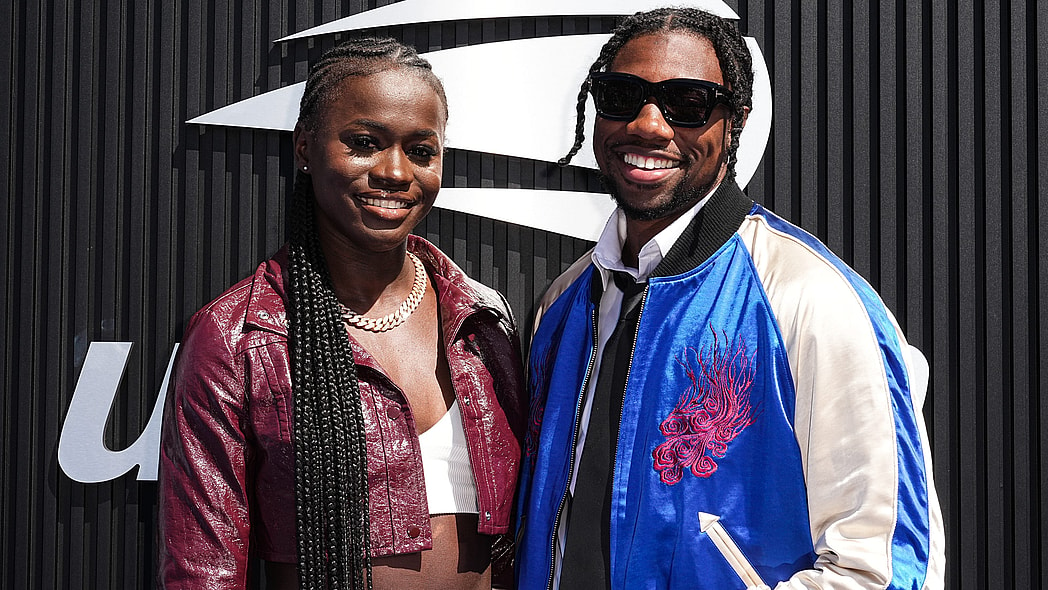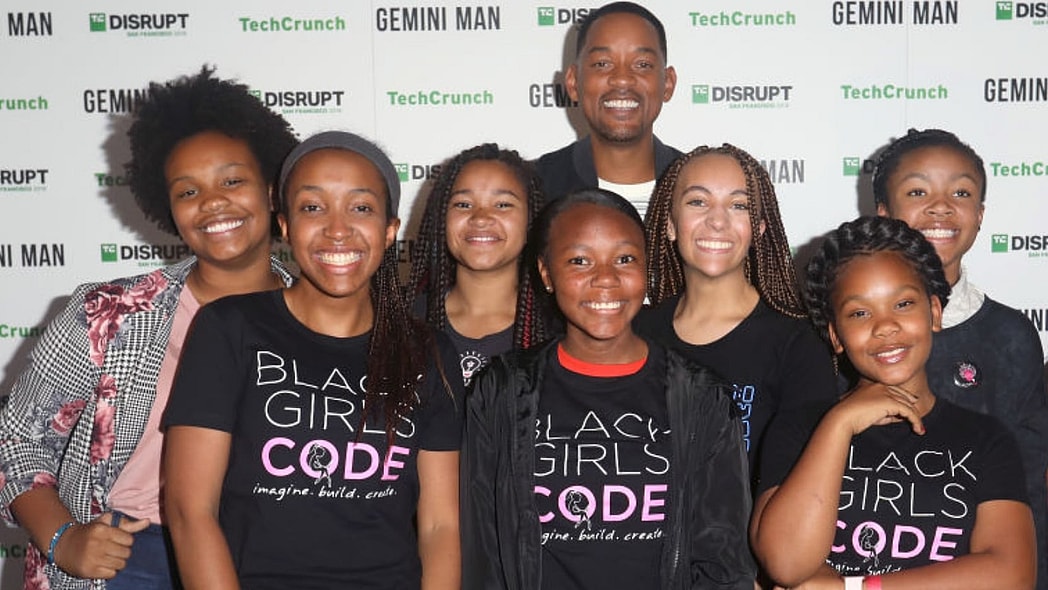Like in other industries, Black-owned brands hold their own in the fashion space. Though it wasn’t always the case, now, it isn’t unusual to see a Black designer showing a collection at New York Fashion Week. From high-end luxury to streetwear, Black fashion brands are changing the game, one garment at a time.
The importance of Black fashion brands

There’s no denying that Black voices matter in every industry, including fashion. Here are two reasons why.
The historical context of Black creativity
The legacy of Black creativity goes back centuries to pre-slave trade days when African societies held rich traditions that included making intricate textiles, creating artwork, making music and dancing. Africans held onto these creative practices and developed more of them during the slave trade, using things like fashion, art, music and dance to preserve their senses of identity, communicate with one another and express their emotions.
After slavery was abolished, Black people continued leaning heavily on creative practices to share their experiences. The Harlem Renaissance is an excellent example of this, as this period — from the 1920s through the 1930s — saw an explosion of Black creativity. Writers, artists, musicians and intellectuals used their abilities to explain the Black experience, fight for social change and challenge racial stereotypes.
As Black artists continue working in fields like art, music, dance and fashion, Black creativity and its impact lives on. Just like those that came before them, Black fashion designers use their craft to do what their ancestors did: share the Black experience, advocate for social change and express themselves.
Cultural representation in fashion
The fashion industry needs Black brands because they provide a platform for representing Black culture. Many Black-owned fashion brands create pieces that feature cultural symbols or traditional fabrics, or perhaps showcase some element rooted in Black heritage or history.
By sharing cultural narratives and symbols, Black fashion designers and brands reclaim them. Some mainstream labels have taken aspects of Black culture and used them without giving credit where it’s due. The Spring 2016 Wild Africa collection from Valentino is an example of this. This show, where only eight of 87 looks were worn by Black models, featured designs taken from African culture and non-Black models with cornrows in their hair.
While the presence of Black fashion brands doesn’t stop other labels from appropriating, it does create platforms for Black traditions, trends and styles to be showcased, honored and appreciated properly.
Prominent Black-owned fashion brands

There is no shortage of Black-owned fashion brands to support. Here are a few of them, plus a few key facts about the designers who founded them, the pieces they sell and how they’ve made their mark on the industry.
This isn’t an exhaustive list. Besides the ones below, other Black-owned businesses in the fashion industry include Wales Bonner, Bianca Saunders, Chelsea Paris and Heron Preston.
Telfar
Telfar Clemens founded his label, Telfar, in 2005. However, he and his brand didn’t get their flowers until 2014 when the iconic Telfar Shopping Bag, nicknamed the “Bushwick Birkin,” debuted.
Like everything else on the Telfar product roster, the bags are gender-neutral and affordable compared to other luxury items. The brand’s tagline — “It’s not for you. It’s for everyone.” — proves why Telfar has become such a beloved name in the Black-owned fashion game: because every piece is designed with inclusivity in mind.
Fear of God
Jerry Lorenzo brought Fear of God to life in 2013, [About Fear of God | Fear of God] and since then, the brand has gained attention for blending streetwear with luxury fashion. Best known for its Essentials collection consisting of oversized tees, polos, track pants and hoodies, Fear of God emphasizes high-quality materials and fine craftsmanship.
Fear of God has also collaborated with other well-known brands. One of these is Adidas, and the result was Fear of God Athletics, a line of stylish and functional performance-wear that launched in 2023.
Christopher John Rogers
Since its inception in 2016, Christopher John Rogers’s self-titled fashion brand has gotten attention from several big names, including Beyoncé, Rihanna, Michelle Obama and Lady Gaga.
It’s not surprising that such stars noticed the brand. Thanks to their characteristic bold colors, playful patterns and interesting blends of textures, CJR garments stand out. After all, they’re designed for the individual with “a strong sense of self.”
Off-White by Virgil Abloh
The late Virgil Abloh — the creative director of Kanye West’s Donda line and Louis Vuitton’s first-ever Black artistic director — founded Off-White in 2013. Off-White is a “multi-platform creative endeavor” designed to combine fashion, streetwear, luxury, art, music and architecture. With items for both men and women and a focus on youth culture, the label brings luxury fashion and streetwear together and has made waves in both realms.
You’ll recognize Off-White by its garments’ unique design elements, including diagonal spray (zebra-esque lines) and quotation marks around words.
Pyer Moss
New York-based designer Kerby Jean-Raymond launched Pyer (pronounced “Pierre”) Moss in 2013. The luxury streetwear brand’s name is a combination of Jean-Raymond’s mother’s American and Haitian last names. The reason people know it is the cultural commentary the designer makes through it.
Past Pyer Moss collections shined a light on various topics like Black mental health and police brutality, and in 2021, Pyer Moss pieces became the first-ever couture collection from a Black-American designer shown at Paris Fashion Week.
Hanifa
Hanifa, founded by Anifa Mvuemba, is “For women without limits” and aims to leave wearers feeling empowered by its pieces.
Bright colors and fun details like ruffles and fringe are Hanifa signatures, not to mention silhouettes designed to enhance curves in all the right ways. It’s also common to see African-inspired prints incorporated into Mvuemba’s designs, paying homage to her Congolese roots.
Though it was founded in 2012 and had attracted celebrity attention before, Hanifa was launched into the international spotlight in 2020 when it debuted a 3D fashion show during the COVID-19 pandemic. This was a groundbreaking move, as it showcased the future of digital fashion.
Brother Vellies
Brother Vellies burst onto the scene in 2013. Its founder, Aurora James, launched the label with the intent to keep traditional African design practices alive and create sustainable jobs for artisans.
The Black-owned, female-powered lifestyle and accessories brand is committed to protecting and caring for the planet through its production practices. That’s why it sources by-products from farmers — vegetable-tanned leather, soles made from recycled tires and more — to make shoes, bags and other products.
LaQuan Smith
LaQuan Smith launched his eponymous curve-friendly women’s brand in 2013. Given that multiple high-profile names — Beyoncé, the Kardashian-Jenner crew and current VP and 2024 Presidential Candidate Kamala Harris, to name a few — have sported his looks, you’ve probably seen a LaQuan Smith piece without realizing it.
The New York-based line aims to, in Smith’s words, “bring sexy back” by specializing in glamorous partywear. You’ll not only find formal evening gowns among the label’s products but items like cocktail dresses, mini skirts and hot pants, too.
Innovation in Black fashion

Black designers have long helped fashion evolve, and many of their contributions can undoubtedly be classified as disruptive innovation.
Disruptive innovation is a product or service that breaks previous patterns or cycles. These cycle-breaking goods often reach a previously overlooked audience or target profitable customers who might not have otherwise interacted with them.
A list of the disruptive innovations in fashion credited to Black culture or Black designers would include examples of clothing that challenged traditional fashion norms or had a unique design aesthetic. Here are a few specific innovations to note.
Challenging traditional fashion norms
- Hoop earrings. These accessories gained visibility thanks to Ebony Magazine. Many of the models on the cover donned hoops, and the trend caught on.
- Monogram print. Famed Black fashion designer Dapper Dan gets the credit for utilizing logomania — that’s printing a brand or monogram all over the item. After he did it, other designers followed suit, and the style became wildly popular.
- Streetwear and high fashion. Streetwear stems from the hip-hop fashion that emerged in the South Bronx in the late 1970s. Rappers and hip-hop artists wanted to stand out and did so by creating unique looks from garments like oversized tees, tracksuits, gold chains, bucket hats and bright-colored sneakers. In the decades since, streetwear has made its way into mainstream fashion, and high-end fashion houses have incorporated streetwear elements into their collections. Many of these streetwear-luxury fashion collections are courtesy of Black designers like Dapper Dan, Virgil Abloh and Willi Smith.
Creating unique designs
One common way in which Black fashion designers create pieces that stand out from the rest is by bringing their roots into their work. Fe Noel is a prime example, as this Grenadian designer brings bits of her Caribbean heritage into her brand and lets her upbringing inspire the creation of unique pieces. She even has a storefront called Fe Noel Little Caribbean that was inspired by her upbringing and intended to not only sell her goods but to highlight other Caribbean artisans.
It’s also worth noting that Fe Noel abides by a “no fabric waste” pledge — a solid contender if you’re looking for sustainable Black brands to support.
Social impact of Black fashion brands

Some Black fashion brands don’t just want to make sure wearers look stylish. They want their pieces and businesses to start conversations or send a call to action. Pyer Moss proved this in 2015, when, during its New York Fashion Week debut, the audience had to sit through 15 minutes of police brutality incident footage before seeing a single piece on the runway.
Other brands start conversations on other topics, like sustainability, gender equality and size inclusivity.
Supporting Black fashion brands
Buying from a Black fashion brand does more than just expand your wardrobe. You’re helping advocate for diversity and inclusion in the fashion industry and contributing to a Black creator and their team’s livelihoods. However, spending money on clothing isn’t the only way to support Black fashion. Acts like sharing a brand’s social media post and liking or following their social profiles work, too. The brand and the Black fashion space as a whole both get support, and you don’t go over your budget — everyone wins.
The list above offers a great starting point to anyone looking for more Black-owned brands to support. The Black Designer Brands website is another resource to check out. There, you’ll find a list of more than 150 Black-owned fashion, beauty and lifestyle brands to support. With a selection so large, you’re bound to find something that speaks to you.








